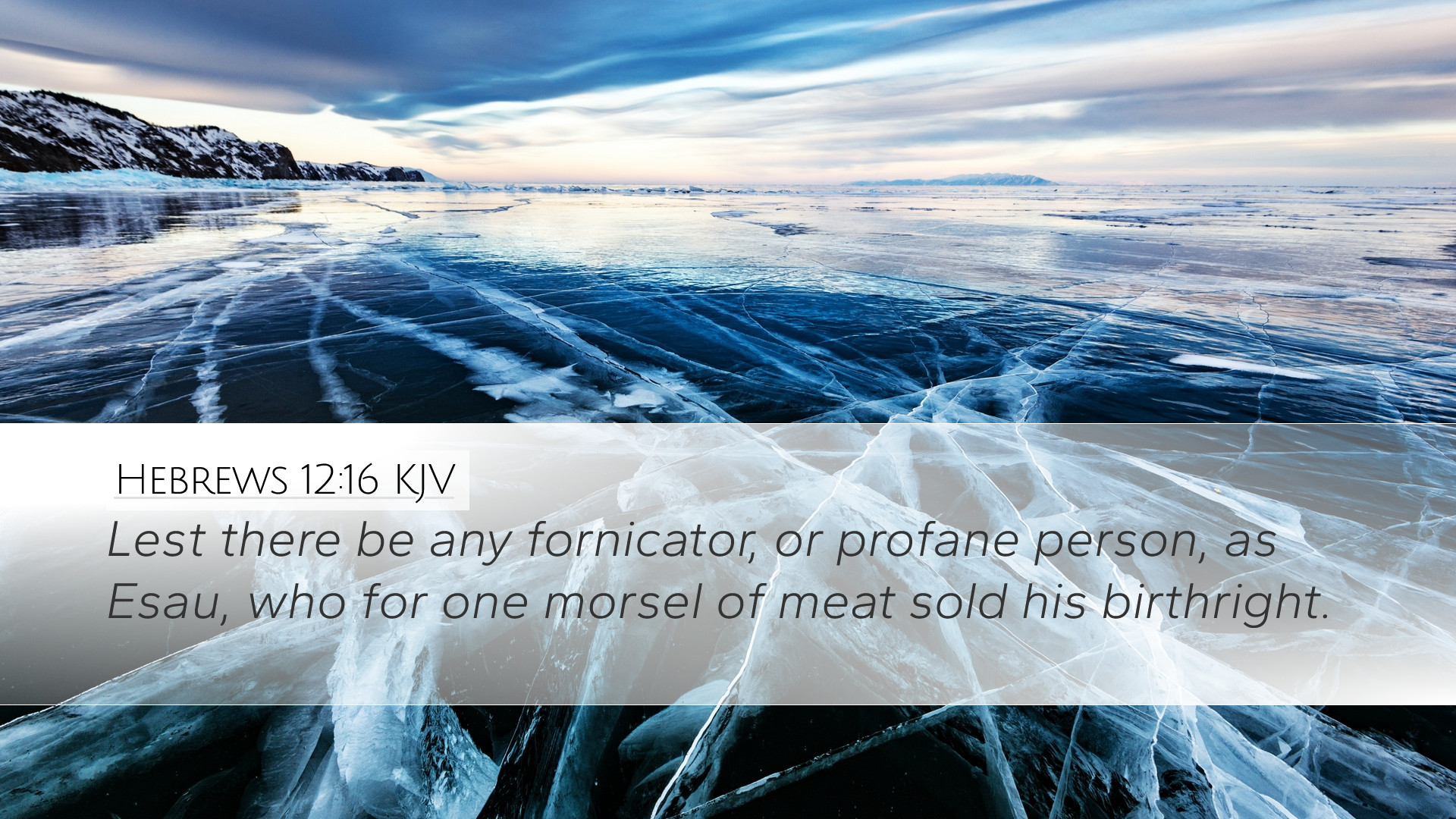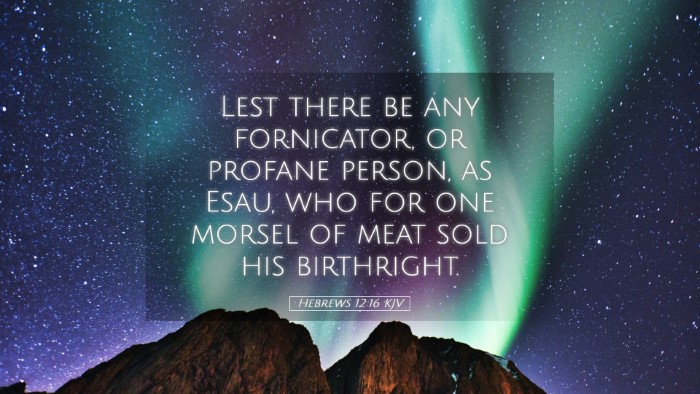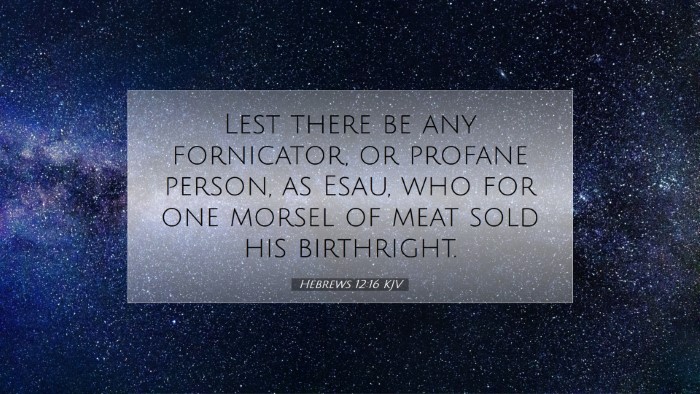Commentary on Hebrews 12:16
Hebrews 12:16 states: "Lest there be any fornicator, or profane person, as Esau, who for one morsel of meat sold his birthright." This verse serves as a significant warning within the broader context of perseverance and faith, highlighting the dangers of moral laxity and spiritual indifference.
Exposition of the Text
The apostle Paul, addressing a community grappling with the pressures of faith, utilizes the figure of Esau as a cautionary tale. Esau's choice to trade his birthright for a mere bowl of stew illustrates the tragic consequences of valuing immediate gratification over eternal promises.
Insights from Matthew Henry
Matthew Henry emphasizes the significance of the birthright, which symbolized both privilege and responsibility. He asserts that selling it for a momentary pleasure reveals a heart devoid of spiritual earnestness.
-
Loss of Spiritual Heritage: Henry notes that Esau's act epitomizes a profound disregard for spiritual inheritance, demonstrating how transient desires can lead to irreversible losses.
-
The Danger of Indifference: He cautions readers against becoming indifferent to spiritual matters, as Esau did, urging an appetite for the eternal over the temporal.
Reflections from Albert Barnes
Albert Barnes situates Esau's narrative in the broader theological discussion of faith and perseverance. He acknowledges Esau's role as a contrasting figure to those who abide in faith.
-
Judgment on Esau's Decisions: Barnes asserts that the scriptural recounting serves not only to describe Esau's actions but also to portray the divine judgment on his lack of foresight regarding spiritual matters.
-
Appeal to the Christian Community: He provides an exhortation for Christians to reflect on the choices they make that prioritize earthly satisfaction over a covenant relationship with God.
Insights from Adam Clarke
Adam Clarke provides a theological reflection on the implications of Esau's choices, exploring the nature of his profane actions. Clarke underscores that Esau’s behavior represents a broader tendency found in humanity to forsake higher values for foolish indulgences.
-
The Nature of Profanity: Clarke defines "profane" as not merely a moral failing but a spiritual condition characterized by irreverence towards God and sacred things.
-
The Importance of Holiness: He highlights the intrinsic value of living a life set apart for God, drawing parallels between Esau’s choices and contemporary applications in Christian life.
Theological Implications
This text becomes a theological nexus, urging believers to evaluate their own lives in light of Esau's example. The warning encapsulated in Hebrews 12:16 is about more than just abstaining from sin; it is fundamentally about prioritizing a relationship with God above all else.
-
Understanding Spiritual Privilege: A correct understanding of one's position in Christ can illuminate the tragic folly of trading that birthright for temporary pleasures.
-
The Consequences of Misplaced Values: The repercussions of Esau's choice demonstrate that neglect of spiritual matters can lead to grave consequences, affecting one’s relationship with God and their community.
Application for Believers
In the light of this passage, believers are called to a deeper commitment to their spiritual walk. They must cultivate an attitude of valuing their relationship with God over immediate desires.
-
A Call to Reflection: Regular self-examination is vital; are we placing our spiritual inheritance above transient desires?
-
Cultivating Perseverance: Let us embrace a collective journey of faith that fosters perseverance, recognizing that true satisfaction comes from the eternal.
Conclusion
Hebrews 12:16 serves as a timeless warning against the dangers of forsaking our spiritual birthright. It challenges us to remain vigilant against the allure of immediate gratification that so easily ensnares. In the pursuits of faith, let us heed the lessons of Esau and strive towards a life characterized by holiness, commitment, and an unwavering focus on the eternal promises of God.


